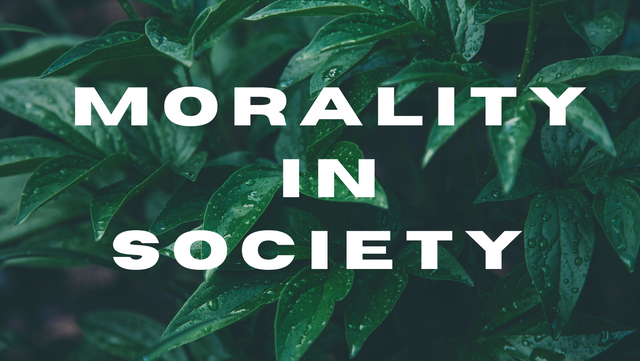
Morality is the set of principles and values that guide individuals and societies to determine what is right and wrong. It is a complex concept that has been studied and debated for centuries by philosophers, religious leaders, and psychologists.
Morality plays a crucial role in our daily lives, influencing our decisions and actions, and shaping our interactions with others. It helps us navigate difficult situations, make ethical judgments, and develop a sense of responsibility toward ourselves and others.
At its core, morality is based on empathy, fairness, and respect for human dignity. These values are universal and apply to all individuals, regardless of their gender, race, or religion. Morality provides a framework for individuals to live in harmony with each other and with the natural world.
The study of morality is multidisciplinary, drawing from fields such as philosophy, psychology, sociology, and anthropology. Philosophers have long debated the nature of morality, with some arguing that it is based on objective moral truths, while others maintain that it is subjective and relative to cultural and individual contexts.
Psychologists have also studied morality, examining its development in children and its influence on behavior. They have identified several stages of moral development, starting from a focus on avoiding punishment to a more complex understanding of universal ethical principles.
Sociologists and anthropologists have examined how morality is shaped by cultural and social norms, and how it varies across different societies and historical periods. They have also explored the role of institutions such as religion and law in shaping moral values and behavior.
One of the most debated issues in morality is the question of whether morality is innate or learned. Some argue that morality is a product of evolution, shaped by natural selection to promote social cooperation and reduce conflict. Others maintain that morality is primarily learned through socialization, education, and cultural conditioning.
Regardless of its origins, morality is essential for a functioning society. Without a shared set of moral values and principles, societies would be chaotic, with individuals pursuing their own interests without regard for the welfare of others.
Morality is also important for personal growth and development. It helps individuals develop a sense of identity and purpose and guides them in making decisions that are consistent with their values and beliefs.
However, morality is not always clear-cut, and individuals may face conflicting moral principles in certain situations. For example, a doctor may face a moral dilemma when deciding whether to respect a patient's autonomy or prioritize the patient's health.
In such cases, individuals must engage in ethical reasoning, weighing the different moral principles at stake and determining the best course of action. This requires a high level of moral reasoning and judgment, which can be developed through education and training.
In recent years, there has been growing concern about the decline of morality in modern societies. Many people argue that moral values have been eroded by the influence of technology, globalization, and changing social norms.
Some have also criticized the moral relativism of postmodernism, arguing that it has led to a breakdown in moral standards and a lack of accountability for unethical behavior.
To address these concerns, many institutions have taken steps to promote moral values and ethics. Schools and universities have implemented courses in ethics and moral reasoning, while businesses and organizations have established codes of conduct and ethical guidelines.
Religious institutions continue to play a significant role in shaping moral values, providing a moral framework for their followers, and promoting ethical behavior.
In conclusion, morality is a complex and multifaceted concept that plays a crucial role in our lives and society. It provides a framework for ethical behavior, promotes social cooperation, and helps individuals develop a sense of purpose and identity. Despite its complexities, morality is a universal value that is essential for a functioning and flourishing society.